16 Apr Al Strong
Carrying his instrument of choice, the trumpet, Al Strong will make his way across the Irregardless stage, come Saturday night. Jazz trumpeter, composer, educator, and curator, Strong is a jack of all trades when it comes to anything jazz. He’s played and recorded for artists such as Aretha Franklin, Clay Aiken, Big Daddy Kane, and Phonte Coleman, to name a few.
Having grown up in a heavily music-appreciated environment, with his grandmother playing gospel hymns on the organ during her weekly in-home church services, and his grandfather introducing him to Ray Charles, Jimmy Smith and Donald Byrd, Strong gained an interest in the production of music and the sounds instruments make.
Throughout his youth, he’s experimented with several instruments, some among them were the organ, drums, and violin, before settling with the trumpet. When asked if he thought the trumpet an instrument that he chose or that chose him, he answered that he chose the trumpet. “I guess partly because my last name is Strong, and I remember hearing louis armstrong’s music. Some of that as a child and then I more or less gravitated towards the trumpet.”
Strong attended Duke Ellington School for the Performing Arts where he was able to performing with his school’s jazz band overseas. From there, he received a full-tuition scholarship to North Carolina Central University (NCCU) to study jazz and then earned a masters in Jazz Performance/Pedagogy at Northern Illinois University. Now, he is an adjunct trumpet professor at NCCU as well as co-founded the Art of Cool Project, with Cicely Mitchell.
The Art of Cool project is a non-profit, jazz organization with its two major programs being Art of Cool Festival, a jazz music festival in Durham, and stArt of Cool, a jazz summer camps for at-risk youth. This year marks the fifth year anniversary for the Art of Cool Festival and just last year, the festival expanded to Charlotte!
“I like that [Art of Cool] fills a void in our music scene that before, didn’t cater to certain audiences, [such as] young working professionals. I would say primarily African Americans, but really diverse audiences,” Strong said. “Providing music and entertainment options that reach diverse audiences; that’s probably what I enjoy the most. A lot of the courses I’m making has been feedback from the concerts so it illustrates the point of the fulfillment of the void in the cultural scene.”
In 2016, AL Strong released his debut album, LoveStrong Vol. 1, which demonstrates the style he’s come into throughout the years. Perhaps over ten years in the making, as some of the tracks can be tracked to the beginning of his NCCU career.
I asked him if he thought his style has changed over the years or has it weaved itself to what it is now and he answered quite knowingly. “I would say that personal style is just that. It’s an individual thing and I think that what we strive for, as artists and performers, is that over time we work hard to refine that style and add to it. I think it’s more of a point of clarity; to be able to communicate your vision for the music in a more clear fashion to your audience. That’s probably the main goal for most artists who are also composers, also presenting original material or ideas.”
Having been boths sides of performing and composing, Strong finds himself comfortable with both and that both go hand in hand. “There are quite a few opportunities to perform and that opens opportunities to compose some things for those situations. It’s just that, in a sense, composing can be a little more of a challenge because most of the time, the only feedback you get is from yourself until it’s actually presented for people and you’re getting that feedback almost immediately. The composition angle of it is that the rewards come a little later than you find in a performing situation.”
The hardest question an artist or composer is often asked is: which is your favorite piece. The answer is never simple and it’s not often one single piece, because each piece of music, of art, of composition, is a part of the artist. Al Strong had hesitations answering this, but still, he gave an answer.
“I wouldn’t say I have a favorite piece; I have several that I have more a connection with for various reasons,” he mused. “I would consider myself more of a ballad player; I’ve always loved ballads, slow songs. The slower songs that you hear on the album, I feel like I have more of a connection with. If I think back to the recording studio, I just felt, because they were slower songs, there’s more time to create over them and improvise and really get to a point of expression so that’s why I’d say they’re my favorites.”











